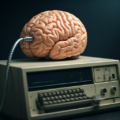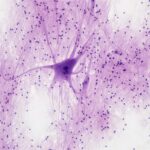Tag Archive: memory
We all know that moving our bodies is good for our hearts, muscles, and joints. Science is also showing that it gives our brains a lift, not just over the long term but even in the hours right after we... View Article
When we think of memory, we think of neurons. These wiry brain cells fire in complex circuits to help us recall names, faces, and where we left our keys. But a new study challenges that assumption. Researchers have discovered that... View Article
Think about your most vivid memory. Maybe it’s a childhood birthday, your first day at a new job, or an emotional moment. Why did that particular event stay with you while countless others vanished? According to a new review by... View Article
Centuries ago, legends claimed that a child might be forced to witness a major event and then be tossed into a river so they would never forget it. The hypothetical method was brutal, but the reasoning behind it carries a... View Article
As we grow older, it’s natural to notice a slowdown in mental sharpness. But did you know that your brain’s “age” can be quite different from the number on your birth certificate? New research shows that with just a small... View Article
If you’ve ever pulled an all-nighter and then found yourself struggling to focus or mixing things up, you’re not alone. You might be experiencing what scientists call attentional blink. A recent study explored what happens when you go a full... View Article
When we think about sleep, most of us imagine our brains quietly filing away the day’s memories. But new research suggests something more intriguing may be happening: your brain could be planning for the future. A team of scientists at... View Article
When most of us think of memory, we imagine a tidy mental archive where every moment of our lives is stored for future reference. Neuroscientist Charan Ranganath says that could not be further from the truth. In his book Why... View Article
How did you check your schedule this morning? In a world dominated by digital tools, the most popular answer would be using a digital calendar. Typing on our phones and laptops, or even using voice assistants has become the norm... View Article
Have you ever wondered how your brain weaves fleeting moments into cohesive memories? A groundbreaking study from the Kavli Institute for Systems Neuroscience in Norway sheds light on this remarkable process. The research team, led by Professors Edvard and May-Britt... View Article
When you’re trying to remember the name of that actor from that movie, your brain might be behaving more like a hungry squirrel than you think. New research suggests that the mental forage for words and ideas follows surprisingly similar... View Article
It’s evident that how we breathe can affect how we feel – we tend to calm down when we focus on deep breaths and become more anxious when taking shallow ones. However, new research shows that breathing may also play... View Article
With so many new-age digital tools, we often rely on our phone’s camera roll storage to hold our memories and ideas. However, relying too heavily on devices can make our brains sluggish. Luckily, we have our own storage system lying... View Article
Have you ever wondered how your brain manages to hold information in mind for a short period of time? For instance, when you read the Wi-Fi password off of a cafe’s menu board and have to hold onto it in... View Article
The human brain has a remarkable ability to keep track of a sequence of events, allowing us to properly recall the correct order in which things happened. Researchers have long suspected that neurons in the hippocampus, known as “time cells,”... View Article
In the 1970s, researchers John O’Keefe and Jonathan Dostrovsky discovered that certain cells in the hippocampus of rats were activated when the rats were in specific locations in their environment. These cells were dubbed “place cells” and are now known... View Article
August 10, 2022 11:00 am
Published by Linda H
Photo by bruce mars on Unsplash. Cognitive stimulation comes in a variety of types: intellectual/mental, physical, or social. Older adults are encouraged to find leisure activities they enjoy doing, and to continue pursuing them for the purpose of joyful meaning-making,... View Article
July 18, 2022 11:00 am
Published by Linda H
A remarkable new study by Evelina Fedorenko’s research group, published in Nature Neuroscience, showed that brain regions associated with language processing in native English speakers were also activated in speakers of 45 other different languages, while they were engaging in... View Article
July 3, 2022 11:00 am
Published by Linda H
More and more people are using their phones for a multitude of tasks such as making online and in-person purchases, creating events, scheduling reminders, tracking tasks, and virtual meetings. All these functions are in addition to those for which people... View Article
May 31, 2022 11:00 am
Published by Linda H
Medicine professor Maxim Bazhenov of the University of California San Diego recently published a study with colleagues in the Journal of Neuroscience that provides insight into the sleep mechanisms that may give rise to relational memory. Photo by Fernando @cferdophotography... View Article



















